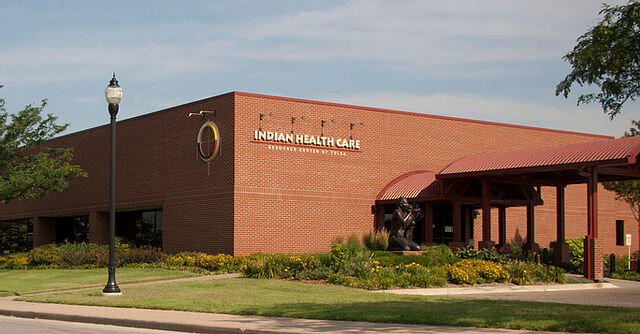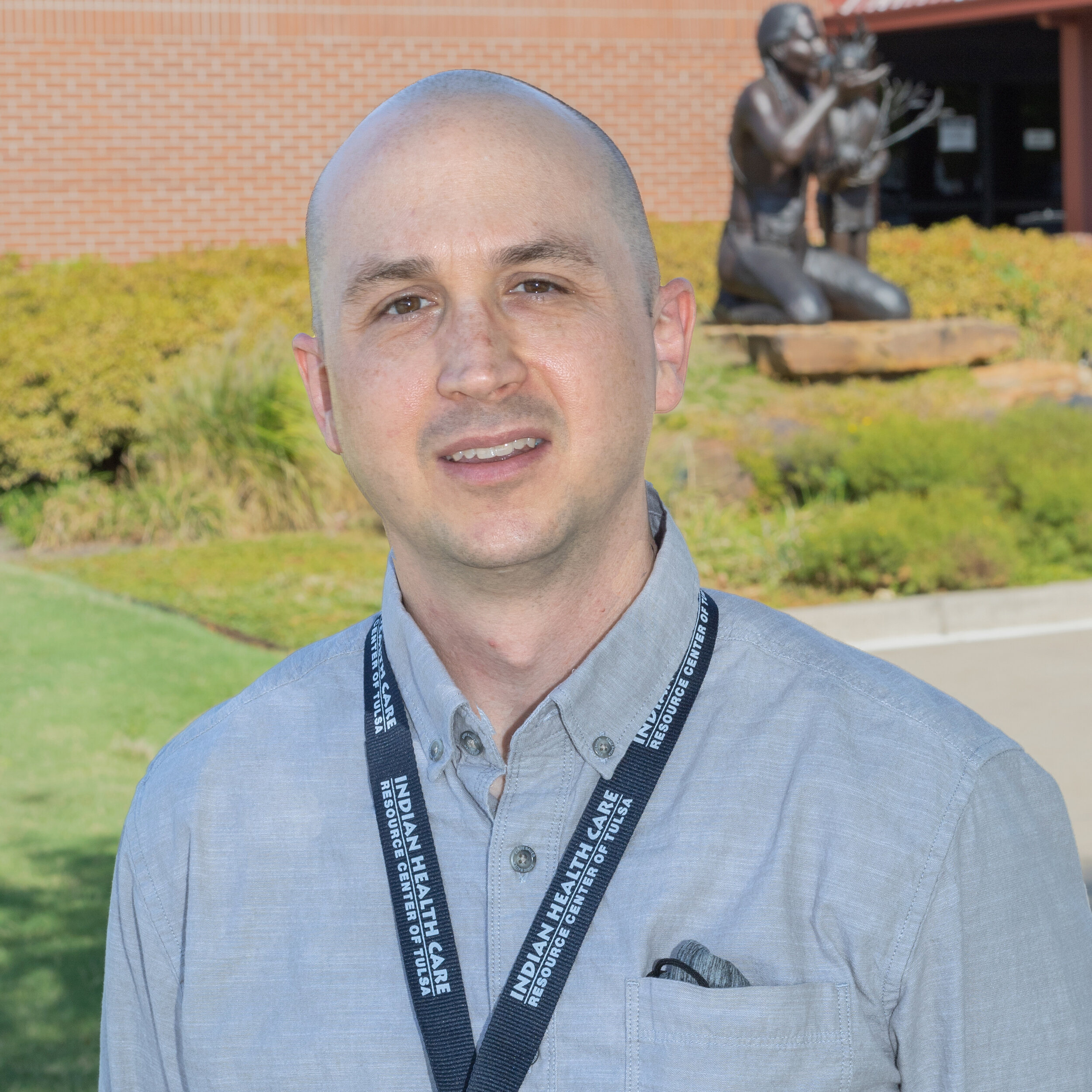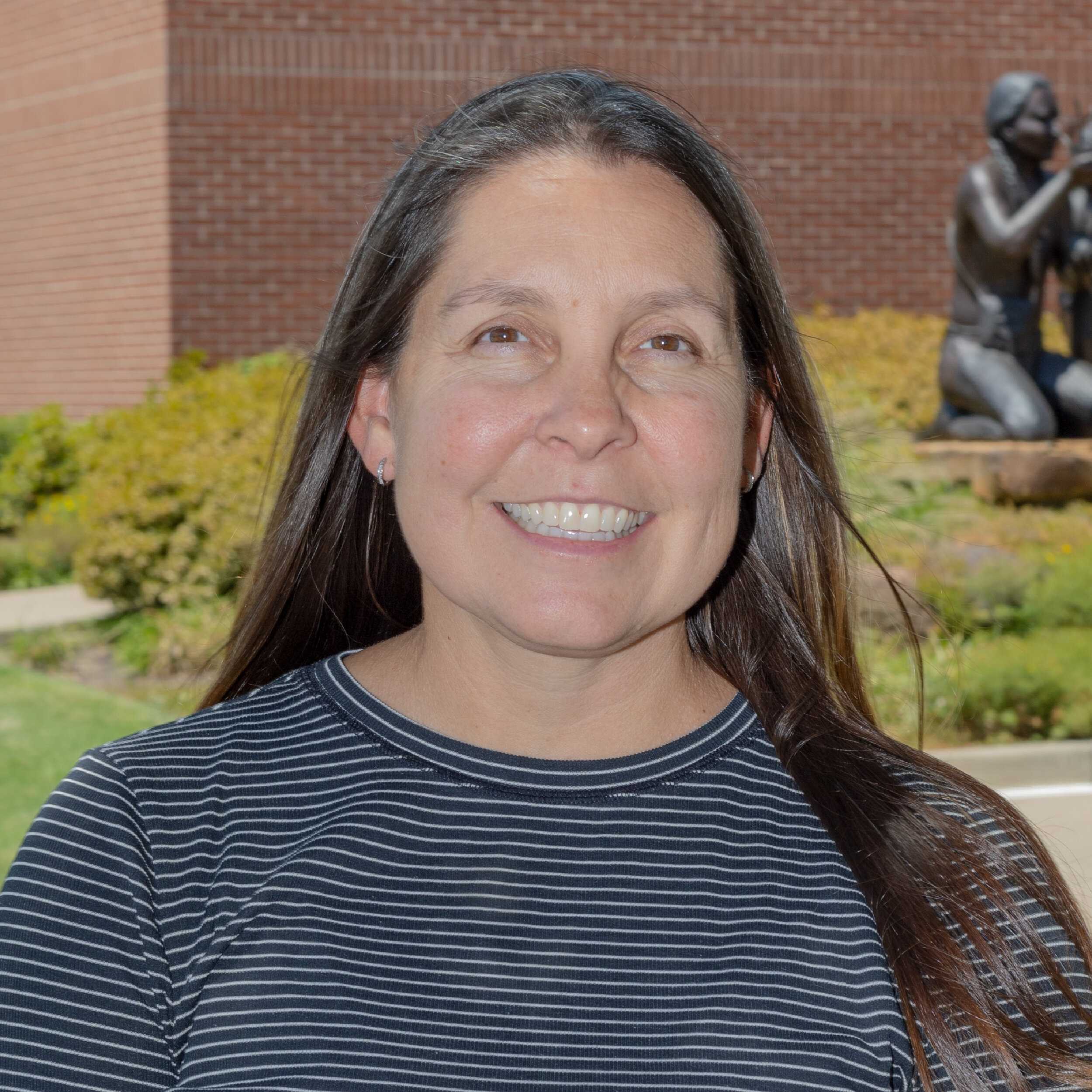
Indian Health Care Resource Center
550 S. Peoria Ave Tulsa, OK 74120
Contact:
David Bright Psy.D.
(918) 588-1900 ext. 3237
dbright@ihcrc.org
Supervision Provided:
A minimum of two hours per week of individual supervision
Intern Activities:
Individual, group, and family therapy
Assessments and report writing: psychoeducational, cognitive, personality, developmental, and diagnostic
Consultation with medical department
Consultation with Systems of Care program
Member of multidisciplinary department
Interdisciplinary and cultural competency training
Funding for 2025-2026:
$38,000
2 internship positions
Payment is every other week
Time Intern is Expected to Be On Site:
36 hours
Supervisor profiles below
Indian Health Care Resource Center of Tulsa, Inc. (IHCRC) is a nonprofit comprehensive health care facility serving the Tulsa-area American Indian community. The mission of IHCRC is to provide quality, comprehensive health care to Tulsa-area American Indian people in a culturally-sensitive manner that promotes good health, well-being, and harmony. IHCRC provides medical, health and wellness education, dental, optometry, substance abuse, pharmacy, and behavioral health services. IHCRC serves individuals across the life span with economically diverse backgrounds.
IHCRC has a multidisciplinary behavioral health department comprised of psychologists, psychiatrists, licensed clinical social workers, licensed professional counselors, and substance abuse counselors. The behavioral health department of IHCRC provides comprehensive outpatient services utilizing evidenced-based practices. Services include clinical interviews, diagnostic assessments, substance abuse treatment, brief interventions with primary care patients, medication management, andtherapy with individuals and families.
IHCRC is focused on training interns to provide behavioral health services in an interdisciplinary medical facility while emphasizing cultural competency in providing service in AmericanIndian communities. Interns are valued members of our multidisciplinary clinic and work collaboratively with a variety of mental health and medical professionals.
The general responsibilities of the interns include:
Psychotherapy/Counseling Services: Interns provide primarily individual therapy services, but some opportunity for couples and family therapy are available. Therapy services are offered to patients across the lifespan, including children, adults, and older adults. Group therapy opportunities are also available. For example, interns provide monthly smoking cessation sessions on a rotating basis to patients referred by their primary care providers. Interns are also encouraged to form new therapy or psychoeducational groups as needed to address patient needs and intern interests.
Psychological Assessment: Interns have an opportunity to conduct a variety of assessments over the course of the training year. The most commonly requested assessments include ADHD, learning disability, and diagnostic clarification. Screenings for autism and dementia are also regularly requested.
Consultation: Interns are available to provide on-call consultation services to our medical providers. These services can include conducting providing brief interventions during medical appointments to patients with alcohol or other substance use disorders and providing connection to IHCRC behavioral health services. In addition, observation of psychiatric appointments can be arranged with our psychiatric providers. Interns regularly engage in consultation with our Systems of Care program, which provides community-based wrap-around services to children and adolescents experiencing behavioral or emotional difficulties.
Community Outreach: Interns participate in community activities, including attending Tulsa Indian Community Advisory Team meetings and annual powwow planning meetings. They have opportunities to be involved in multiple community events, including volunteering at the annual powwow, attending stomp dances, observing youth drum group practices, chaperoning youth dances, and assisting with events for families in the community.
To learn more about Indian Health Care Resource Center, please visit www.ihcrc.org.
Indian Healthcare Resource Center:
NOPIP Intern Tour
-

David Bright Psy.D.
Dr. Bright has been with IHCRC since 2014 and is himself a graduate of NOPIP. He received his doctorate in clinical psychology from Nova Southeastern University in Fort Lauderdale, FL. After completing his internship at IHCRC, Dr. Bright worked as a staff psychologist until he took over as Director of Clinical Training in August 2018. While a generalist in practice, Dr. Bright specializes in working with anxiety disorders using primarily cognitive-behavioral and exposure therapies. The 2019 recipient of the Oklahoma Indian Health Service Area Director’s Individual Impact Award, he also has worked extensively with members of racial, cultural, gender, and sexual minority groups in a manner sensitive to difference and respectful of individual experience.
-

Jason Menting Psy.D.
Dr. Menting has been at IHCRC since 2012 where he completed his internship through NOPIP and served as the Director of Clinical Training from 2013 until July 2018 when he took over as the Director of Behavioral Health. Dr. Menting is a graduate of the clinical psychology doctoral program at Xavier University in Cincinnati, OH. He also completed a certificate in American Indian Studies while completing his undergraduate degree at the University of Wisconsin.
-

Joanna Shadlow Ph.D.
Dr. Shadlow, an applied assistant professor within the psychology department at the University of Tulsa, has been with IHCRC since 2009 as a part-time staff psychologist and clinical supervisor. She completed her doctorate in child clinical psychology at the University of Kansas in Lawrence, KS. Dr. Shadlow is an expert in the treatment of children and frequently has clients referred to her due to her specialty in working with children with problems such as enuresis and encopresis, as well as developmental, behavioral, and emotional problems. She trains interns in various evidence-based treatment models and provides ongoing supervision of child cases throughout the year.
IHCRC Team





